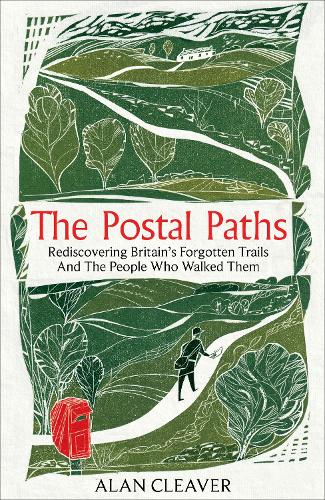
The Postal Paths: Rediscovering Britains Forgotten Trails And The People Who Walked Them
(Hardback)
Publishing Details
The Postal Paths: Rediscovering Britains Forgotten Trails And The People Who Walked Them
By (Author) Alan Cleaver
Octopus Publishing Group
Monoray
8th July 2025
24th April 2025
United Kingdom
Classifications
General
Non Fiction
Social and cultural history
The countryside, country life: general interest
Local and family history, nostalgia
National parks, marine parks, wilderness areas and nature reserves
383.143094109
Physical Properties
Hardback
304
Width 158mm, Height 236mm, Spine 30mm
489g
Description
Seeing the hills, the crofts, villages and ruins only tells half the story. The people who worked, walked, lived and died here are the other half.
Postal paths span the length and breadth of Britain - from the furthermost corners of the Outer Hebrides to the isolated communities clinging to the cliffs of the Rame Peninsula in south-east Cornwall. As far back as the 1660s, postmen and women have been moulding and forging paths to deliver posts to homes across Britain, no matter how remote. A chance remark by a farmer about a Postman's Path led Alan Cleaver on a quest to discover more about this network of lanes, short-cuts and footpaths in the British landscape. What he found, through his walks, conversations and painstaking research, was more than just beautiful scenery. It was an incredible, forgotten slice of social history - the remarkable tales and toil of rural postmen and women trudging down lanes, over fields, and even across rivers to make sure the post always came on time. From women like Hannah Knowles, who began her job delivering letters in 1912 and would only miss three days through illness over the next 62 years of service, to WW1 veteran Matt Bendelow, who managed his 9-mile delivery route on one leg, Postal Paths paints a vivid picture of the people who not only served their communities but, more often than not, built them.From the rolling fells of Cumbria to Kent's shingle coast, Postal Paths is a journey through Britain's past - and its future.Author Bio
Alan Cleaver is a retired newspaper journalist and editor, with a career spent mostly in provincial journalism. In 2010, he decided to leave journalism to self-publish books on Cumbrian history, folklore and walking.
